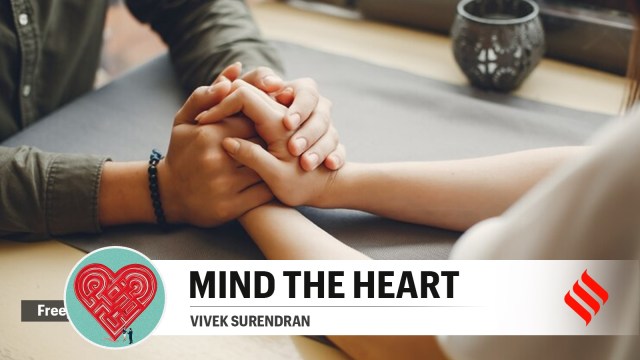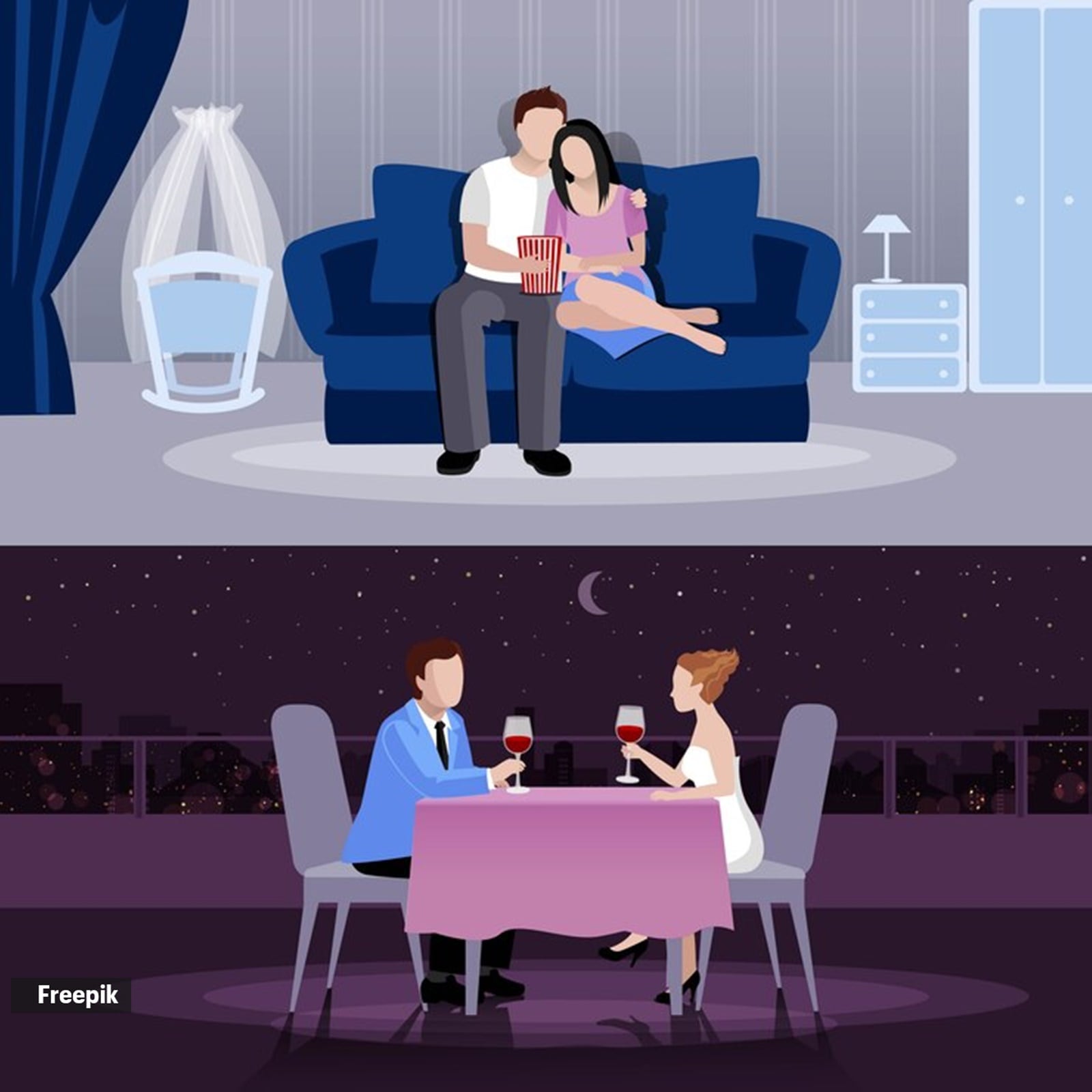📣 For more lifestyle news, click here to join our WhatsApp Channel and also follow us on Instagram
Do we end up ‘dating’ our parents? Unpacking how family shapes love life
The shadows of some close, towering figures in my life cast shadows over my heart when I navigate romantic relationships. Here, I explore the quiet, often unspoken connections between family dynamics and how we choose to love.
 What does science say about these echoes we chase, and why do they linger so long? (Source: Freepik)
What does science say about these echoes we chase, and why do they linger so long? (Source: Freepik)Now, at 34, I find myself staring at the abyss, with a question that hovers every spark I’ve chased: do I end up dating my parents? Not in the literal sense, of course, but in the way their long, quiet shadows are cast over my heart, across the women I love. There is a map carved in my soul, guiding me to partners in ways I never saw until I paused and took a harder look. This might be a question that might linger in your heart, too, so let us tug at these strings together to see what truths they reveal.
What kind of love have I been chasing all along, and where did it begin? My mother has been a towering influence, a woman whose ambition and independence lit up our home. She still is the same––a force who made my life a breeze by creating a safe space where I could share anything, from the sting of being bullied at college to my trysts with intoxicants. My aunt, with whom I spent my post-teenage years, was a mirror of that strength; she was bold, no-nonsense, and a fearless decision-maker. These women sculpted me, chiseling me into someone who values their fire, their unapologetic drive. In their glow, I became who I am, and I see their light in the women I seek: bold, driven, fierce, with a spark that refuses to dim. Anything less wouldn’t cut it.
However, if I sense a spark, I do dive in with a genuine heart, opening myself fully into the possibility of finding love and connection again, but when I realise they’re not as ambitious, not as independent as I had hoped, the attraction dims. A recent date, beautiful, witty, and warm comes to my mind. Her aspirations, however, felt small, her days too comfortable. I felt the spark fade, and that is when I realised that I am lit by the women who raised me, their fire an unspoken standard I can’t seem to let go.
I wondered if I am alone in this.
Rituparna Sengupta, 45, a communication consultant, offered a glimpse over a quiet coffee: “It’s not that I actively sought people who had traits of my parents. But when things got dysfunctional or difficult, I realised that I was looking for the same security and a sense of home that my father provided, where I felt safe and seen.”
Pooja (named changed), an ed-tech entrepreneur from Bengaluru, told me over a WhatsApp call that she used to fall for emotionally unavailable men, even seek such men, thinking she could fix them, but later recognised the pattern and saw it mirrored her father’s unavailability. “I’d chase men who were distant, hoping I could make them stay,” she said, her voice heavy, “but I was just trying to fix what I couldn’t with my dad.”
Shirley G, 35, tech strategy consultant, had a darker thread to add: “Pretty much every relationship I’ve been in, every man I’ve been attracted to, has exhibited at least one trait of my dad’s—and it’s not even the good traits,” she said with a wry smile. “Anger issues, communication issues, silent treatment as punishment, not being protective when he should be, constant criticism—like when I cook something new, my dad would say, ‘It’s nice, but this certain something about it isn’t’; Not owning up to mistakes, being unforgiving, holding grudges.” When I asked how this affected her love life, Shirley sighed, “Affected is not the word—destroyed would be more apt.”
 Do I end up dating my parents or can I choose a different rhythm? (Source: Freepik)
Do I end up dating my parents or can I choose a different rhythm? (Source: Freepik)
What does science say about these echoes we chase, and why do they linger so long? Dr Geo George, MD psychiatry, consultant psychiatrist at Mindful Rejuvenation, Angamaly, Kerala, offered a window into the why: “For someone who has a good childhood, with emotional warmth and mutual compliments, it is natural to want a partner with those traits. On the contrary, someone who has a neglected childhood, uninvolved parents, would try to avoid similar traits in a partner.” Yet, he added, attachment theory suggests a deeper pull: “People do seek familiar behaviour patterns in partners, positive or negative, because of the recognisability, reliability, and comfort it gives, though with awareness, these patterns can shift.” I can resonate with this—my mother’s ambition feels like a warmth I seek on a cold winter night, while Shirley chases her father’s darker traits, perhaps seeking the comfort of the known, even if it burns.
Dr George also pointed to imprinting theory, which influences attachment theory: “Some people seek the safe spot they are familiar with because of early childhood experiences, where they feel comfortable. But in today’s day and age, this isn’t always the case; people take time to explore the other person’s character, often travelling, living together to understand each other better, and generally have an awareness that there are many options, so they don’t have to compromise.”
I found a stark statistic in a 2023 study from the Journal of Family Psychology: 60 per cent of adults exhibit attachment styles that mirror their childhood relationships with parents, a ripple effect that influences partner choice and relationship patterns. A 2022 study in the Indian Journal of Psychiatry said 55 per cent of Indian adults report familial influence on their partner preferences, often citing traits like emotional availability, ambition, or decision-making as echoes of their parents. These numbers convince me of a truth – our hearts carry blueprints we didn’t draw, maps we follow without knowing, drawn by the hands of those who loved us first.
Do I end up dating my parents, or can I choose a different rhythm? Yes, I do, but I’m not bound by them. My mother’s strength, my aunt’s fire, Rituparna’s hindsight, Pooja’s shadows, Shirley’s scars—they’re all notes in a melody I’ve been humming since childhood, a song I didn’t know I’d learned. But here’s the hope, a chord that rises above the rest: we’re not chained to this tune. We can choose partners who don’t just echo our past but help us grow into our future, who add new notes to the song of our lives.
Mind the Heart attempts to uncover the unspoken in our relationships—or the over-discussed, without nuance—spanning solo paths, family bonds, and romantic hopes. Join us to discover the whys of our ties.
📣 For more lifestyle news, click here to join our WhatsApp Channel and also follow us on Instagram





- 01
- 02
- 03
- 04
- 05






















